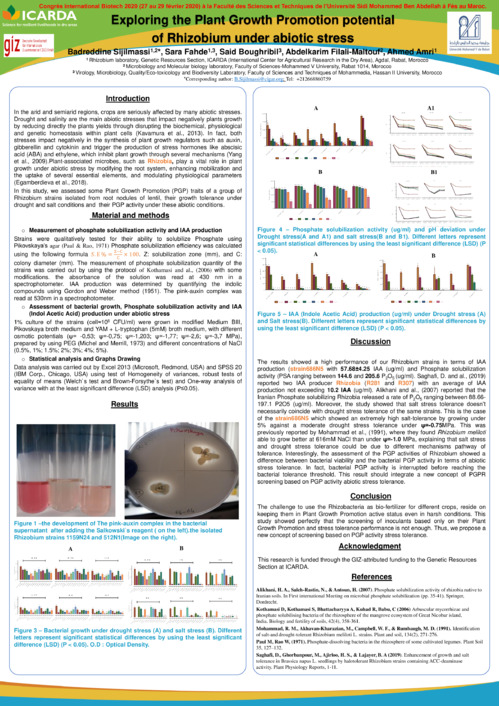Exploring the Plant Growth Promotion potential of Rhizobium under abiotic stress
Abstract
In the arid and semiarid regions, crops are seriously affected by many abiotic stresses. Drought and salinity are the main abiotic stresses that impact negatively plants growth by reducing directly the plants yields through disrupting the biochemical, physiological and genetic homeostasis within plant cells (Kavamura et al., 2013). In fact, both stresses impact negatively in the synthesis of plant growth regulators such as auxin, gibberellin and cytokinin and trigger the production of stress hormones like abscisic acid (ABA) and ethylene, which inhibit plant growth through several mechanisms (Yang et al., 2009).Plant-associated microbes, such as Rhizobia, play a vital role in plant growth under abiotic stress by modifying the root system, enhancing mobilization and the uptake of several essential elements, and modulating physiological parameters (Egamberdieva et al., 2018). In this study, we assessed some Plant Growth Promotion (PGP) traits of a group of Rhizobium strains isolated from root nodules of lentil, their growth tolerance under drought and salt conditions and their PGP activity under these abiotic conditions

